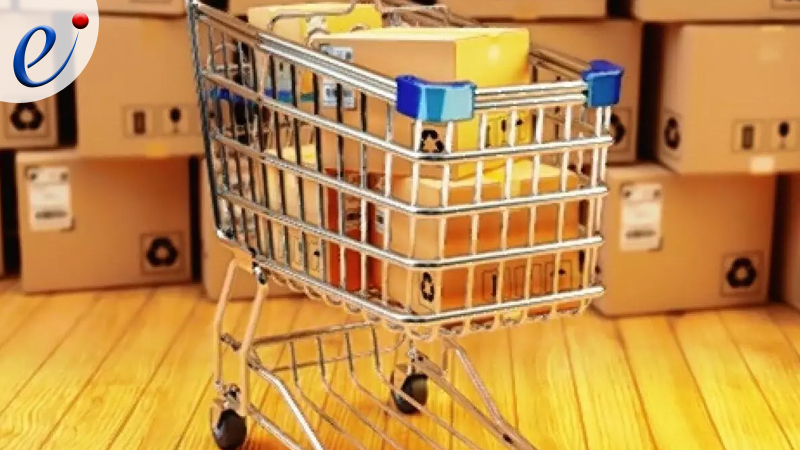
The world has seen tremendous development in the e-commerce market in India. This has caused the number of packages handled by the logistics sector to rise significantly. According to projections, India's e-commerce logistics industry would handle an astounding 10 billion packages by 2028. Let's examine the causes of this rise and what they mean for the nation's logistics system.
India has experienced nothing short of remarkable growth in e-commerce. Increasing numbers of customers are using online shopping platforms due to the widespread adoption of smartphones and rising internet usage. There is a huge need for effective and trustworthy logistics services as a result of the growth in e-commerce activities.
The development of the e-commerce logistics sector in India has been significantly aided by the Indian government. Initiatives like Make in India and Digital India have fostered business facilitation and digitalization. This creates a favourable climate for online shopping. E-commerce platforms have spread quickly across the nation as a result of these initiatives.
The growing customer base in India is one of the main factors contributing to the anticipated rise in e-commerce logistics. Demand for e-commerce services is anticipated to increase in the coming days. This is true since more individuals will acquire access to the internet and grow confident in doing their shopping online. Director of ExportersIndia.com, Ankit Gupta believes for players in e-commerce companies, this expanding consumer base offers enormous prospects.
The success of e-commerce logistics depends on effective last-mile delivery. Companies are making investments in cutting-edge technologies to expedite last-mile delivery as a result of this realization. This involves utilizing technology to ensure quicker and more precise deliveries to clients' doorsteps. You can think of examples such as route optimization algorithms, drones, and delivery lockers.
Significant infrastructure construction is in progress to support the projected rise in the e-commerce logistics industry. To increase the effectiveness of the logistics ecosystem, investments are being made in storage facilities, transportation networks, and technological systems. To accommodate the anticipated amount of parcels and the rising demand, this infrastructural expansion is essential.
The logistics sector of e-commerce faces enormous problems in handling 10 billion packages by 2028. Careful planning and investment are needed to manage the rise in demand during peak seasons. It is also necessary to fix infrastructure deficiencies in remote regions and ensure flawless operations across great distances. To meet these issues, logistics companies must implement scalable solutions and use technology.
A large amount of economic opportunity and job creation potential is presented by India's impressive growth in e-commerce logistics. A trained staff is needed to manage operations and handle storage, transportation, and last-mile delivery. This is necessary as e-commerce platforms and logistics networks expand. This expansion may help the nation's job situation and promote economic development.
Sustainability and its effects on the environment are becoming more and more important issues as e-commerce logistics volume increases. Increased parcel delivery increases packaging waste, carbon emissions, and road congestion. To reduce its ecological impact, the sector must concentrate on implementing sustainable practices. Examples include using electric cars, eco-friendly packaging, and streamlining delivery routes.
Collaboration and creativity are essential for handling the anticipated volume of packages successfully. The development of scalable solutions and the optimization of operations need collaboration between e-commerce platforms, logistics providers, and technology firms. Adopting cutting-edge innovations like robots, automation, and artificial intelligence may improve productivity and customer happiness even more.
According to predictions, India's e-commerce logistics industry will experience spectacular development and would handle 10 billion packages by 2028. This growth is being fueled by the swift development of e-commerce, government initiatives, and a growing customer base.